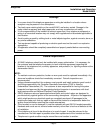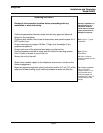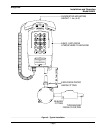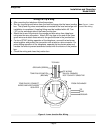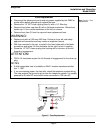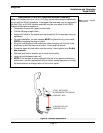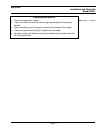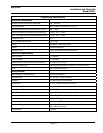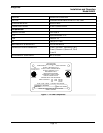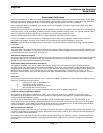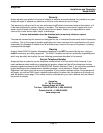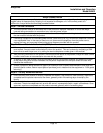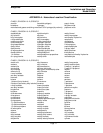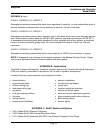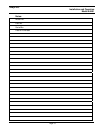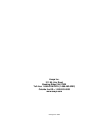
Avaya Inc.
Installation and Operation
Model EA401
Page 18
APPENDIX A (cont.)
CLASS II, DIVISION 1 & 2, GROUP E
Atmospheres containing combustible metal dusts regardless of resistivity, or other combustible dusts of
similarly hazardous characteristics having resistivity of less than 10
5
ohm-centimeter
CLASS II, DIVISION 1 & 2, GROUP F
Atmospheres containing carbon black, charcoal, coal or coke dusts which have more than eight percent
total volatile material (carbon black per ASTM D1620; charcoal, coal and coke dusts per ASTM D271)
or atmospheres containing these dusts sensitized by other materials so that they present an explosion
hazard, and having resistivity greater than 100 ohm-centimeter but equal to or less than 10
8
ohm
centimeter.
CLASS II, DIVISION 1 & 2, GROUP G
Atmospheres containing combustible dusts having resistivity of 100000 ohm-centimeter or greater.
NOTE: This appendix is a summary of information contained in the National Electrical Code. Please
refer to local applicable Electrical Codes for details and latest update.
APPENDIX B - Applications
The EA401 Explosive Atmosphere Telephone has been approved by Canadian Standards Association
(CSA) and listed by Underwriters' Laboratories (UL) for use in explosive atmospheres.
Locations that may require explosion-proof equipment include:
• chemical plants
• petrochemical plants
• offshore drilling rigs
• land-based drilling rigs
• gas plants
• oil & gas metering facilities
• refineries
• fueling stations
• breweries and distilleries
• defense installations
• munitions storage depots
• missile silos
• liquefied natural gas terminals
• tankers and tanker depots
• paint and varnish manufacturing plants
• grain processing and similar industries
• bulk loading stations
• fertilizer plants
APPENDIX C - EA401 Models and Options
• P4011 Model EA401 Standard Telephone
• P4021 Model EA401 With Internal Ring Detect Relay
• P1011 Model EA401 Assembly With CE20 Line-Powered, Explosion Proof Ringer



